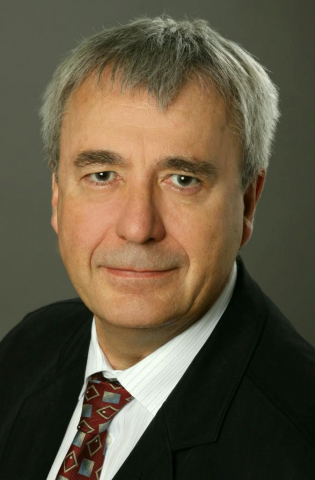Dr. Klaus Brandt is a battery technology consultant. Over the past four decades, he has contributed significantly to the development of the lithium-ion battery and its precursor technology. In September 2018 his book "Li-Battery Safety" was published. On the occasion of the certification of EASy Marine®, CP editor Sonja Jüde asked Dr. Klaus Brandt about the current challenges of maritime battery technology.
Dr. Brandt, what does maritime battery technology mean for the new reality?
"Whether from an ecological perspective or for economic reasons: It remains urgent that we reduce emissions. Even if we devote our attention to a new challenge in the short term, our carbon footprint will quickly become a priority issue again. We must therefore continue to develop - and use - the technologies for electric mobility. The electrification of
shipping is a long-term project. As fewer ships are expected to be built in the near future than originally planned, the need for conversions to hybrid propulsion will initially increase".
What is the key to the conversion to hybrid ship propulsion?
"Flexibility. Every ship is different, but one thing unites them: space on board is precious. Ships therefore require a very efficient space utilization. There is often not even two meters of height available in the battery space. This is why a particularly clever solution is needed here. A flexible battery system that adapts to existing and not necessarily cuboidal space, as well as to the ship's electrical system. The hybrid ship's propulsion system requires - unlike the all-electric one - an extremely powerful battery, which also has a high cycle stability for frequent charging and discharging.”

And EASy Marine® is such a "clever solution" for hybrid ship propulsion?
"Yes. Even more than that. The battery concept EASy Marine is characterized by two outstanding features: It is flexible in its design and it is based on lithium iron phosphate, i.e. LFP."
What advantages does EASy Marine® bring with these properties?
"The dimensions of the battery system are highly variable through a completely flexible arrangement of the modules. The modular design is adaptable to the space available. This particular idea of the modular form is completely new. There is no comparable battery topology in this field of application. The second major advantage of EASy Marine is its cell chemistry, the LFP cathode material. It provides the extreme power that a hybrid ship needs and compensates for fast load changes in the ship’s electrical grid. LFP also has an extremely long service life, regardless of whether it is used in combination with diesel, LNG or fuel cells. But not only that - LFP is also indispensable for maritime safety."
As an LI safety expert, how do you assess the value of LFP?
"A fire at sea causes extreme damage in every respect. Every new battery technology must meet the increasing safety requirements. EASy Marine meets them. Lithium iron phosphate is the safest cell chemistry a Li-ion battery can have - much safer than other cathode materials. Apart from this, there is another argument in favour of LFP. This is a sustainable cell chemistry. Iron and phosphate are not in short supply - unlike cobalt or later even nickel.“
What makes EAS Batteries a strong partner for maritime hybrid solutions?
"LFP was only introduced as a battery material a little more than ten years ago. EAS, formerly GAIA, has been working with this material since the beginning. This is the maximum experience. As a highly innovative niche supplier, the company is agile enough to react quickly to changing market requirements. With EASy Marine, EAS has pursued an independent solution for various applications in the maritime industry. To decide on LFP as cathode material was a conscious and wise decision."
In which function were you involved in the development of EASy Marine®?
"As a consultant I often act as a reality check for companies, sometimes even as a conservative element. I always keep an eye on the latest technologies and see whether an idea is innovative and whether it can be implemented within a reasonable time and cost. I have accompanied the development of EASy Marine from the very beginning and therefore
know it well. I am absolutely convinced that with EASy Marine, EAS Batteries makes a valuable contribution to safety and an improved environmental balance within the maritime industry.“
Why is it so important for ship owners to convert to hybrid propulsion now?
"The maritime industry is undergoing regulatory change. The emission of combustion gases is simply no longer acceptable in certain areas. This new social attitude is increasingly reflected in the relevant legislation. The majority of ships operated today will survive this change. Ships will last a long time - about 50 years if well maintained. That is why the conversion to hybrid systems is a huge issue in the maritime economy, now more than ever. Especially in long-distance shipping, hybrid propulsion is unavoidable, because battery-powered ships simply cannot cross the ocean, even with advanced battery technologies. In the long term, a hybrid drive with fuel cells and batteries could represent a fully electric solution."